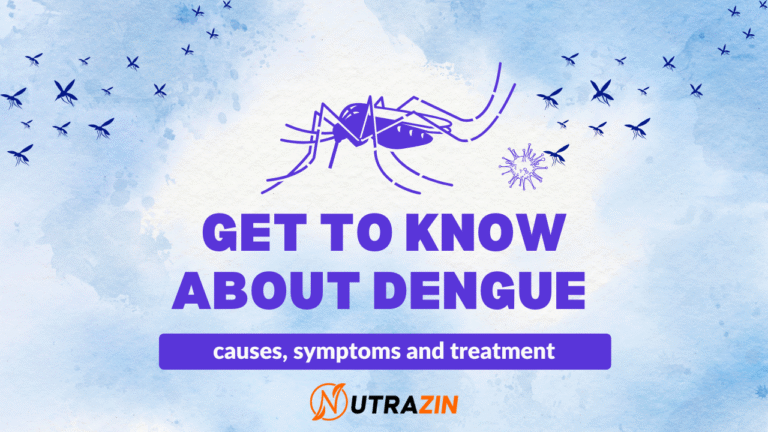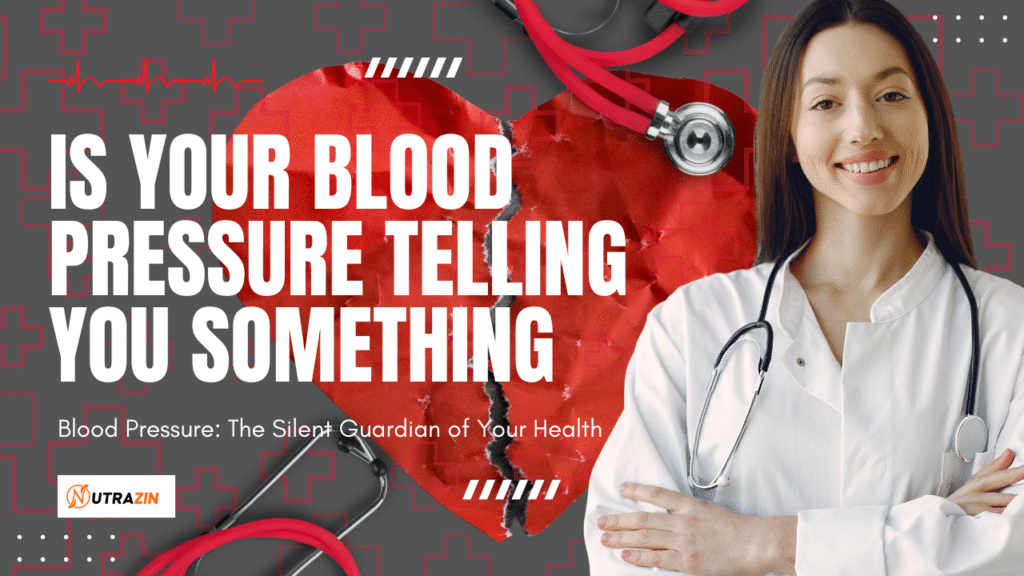
Have you ever checked your blood pressure and wondered, “What do these numbers mean?” You are not alone. Although blood pressure may seem technical or routine, it is one of your most important general health indicators.
Today, let’s sit down and find out what you know about this quiet power that flows through the nerves. This will not be a lecture. Think of it as a conversation that can change your health for the better – for good.
What is blood pressure and why should you care?
Blood pressure is the power of your blood that pushes against the walls of your arteries because your heart pumps it in your body. This is an important process, and it never stops – not even a second.
There are two main measurements of blood pressure:
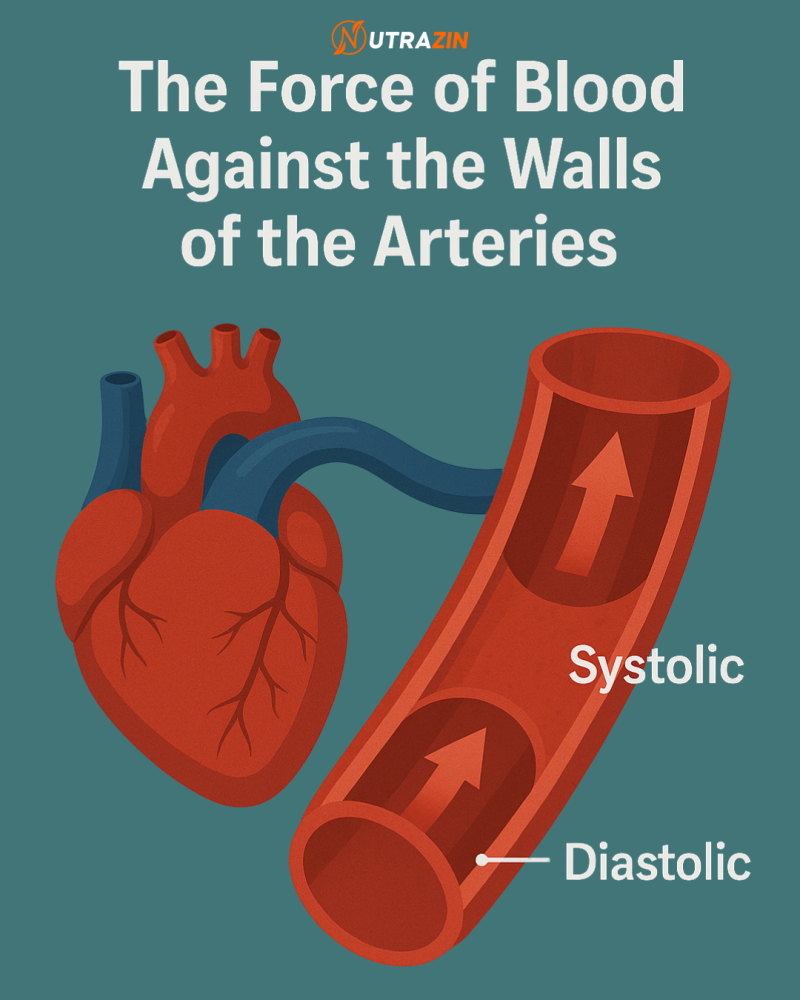
Systolic pressure (top number) – Pressure between your arteries when your heart beats.
Diastolic pressure (number below) – the pressure when your heart rests between beats.
Therefore, when your doctor tells you that your BP is 120/80 mmHg, it means that your heart works within an optimal area. But when they throw numbers – either too much or too little – your body struggles, often without showing immediate signs.
Understanding numbers: Blood pressure categories
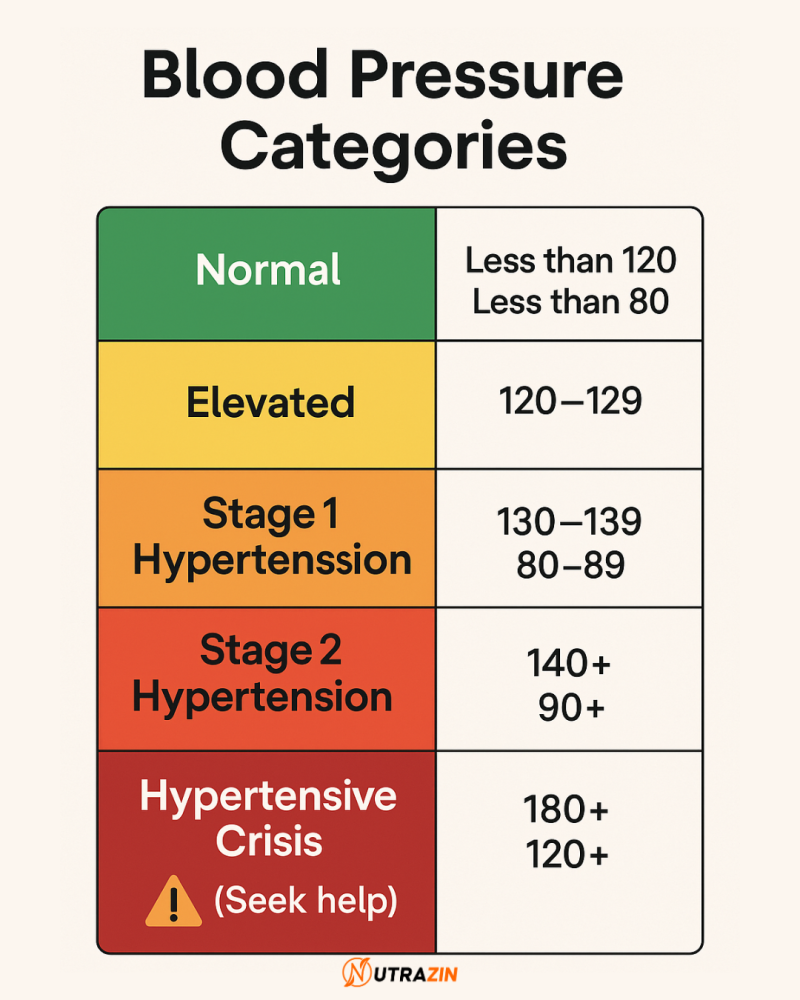
A normal blood pressure reading is considered less than 120 mmHg systolic and less than 80 mmHg diastolic. When systolic pressure occurs between 120-129 mmHg and the diastolic remains below 80 mmhg, it is classified as elevated blood pressure.
Step 1 Hypertension is diagnosed when systolic pressure occurs between 130–139 mmhg or diastolic pressure between 80-89 mmhg. If systolic pressure reaches 140 mmhg or more, or diastolic pressure, 90 mmHg or more, it is classified as step 2 hypertension.
You can feel fine even when your number is high. This is a difficult part – and this is why blood pressure is often called “the quiet killer”.
Types of blood pressure disorders
1. High blood pressure (high blood pressure)
As your blood constantly puts a lot of pressure on the arterial walls, over time, it begins to weaken your cardiovascular system. This is not just about a heart attack – the risk of high blood pressure increases:
- Shock
- kidney failure
- Loses sight
- Aneurysms
- Cognitive decline and dementia
Common causes:
- Stress and anxiety
- High salt intake
- Axia
- Overweight and poor nutrition
- Smoking and alcohol use
- Chronic diseases or medications
The most dangerous aspect of high BP is that it often does not show any symptoms unless there is already a cause of injury. Therefore, regular monitoring is important.
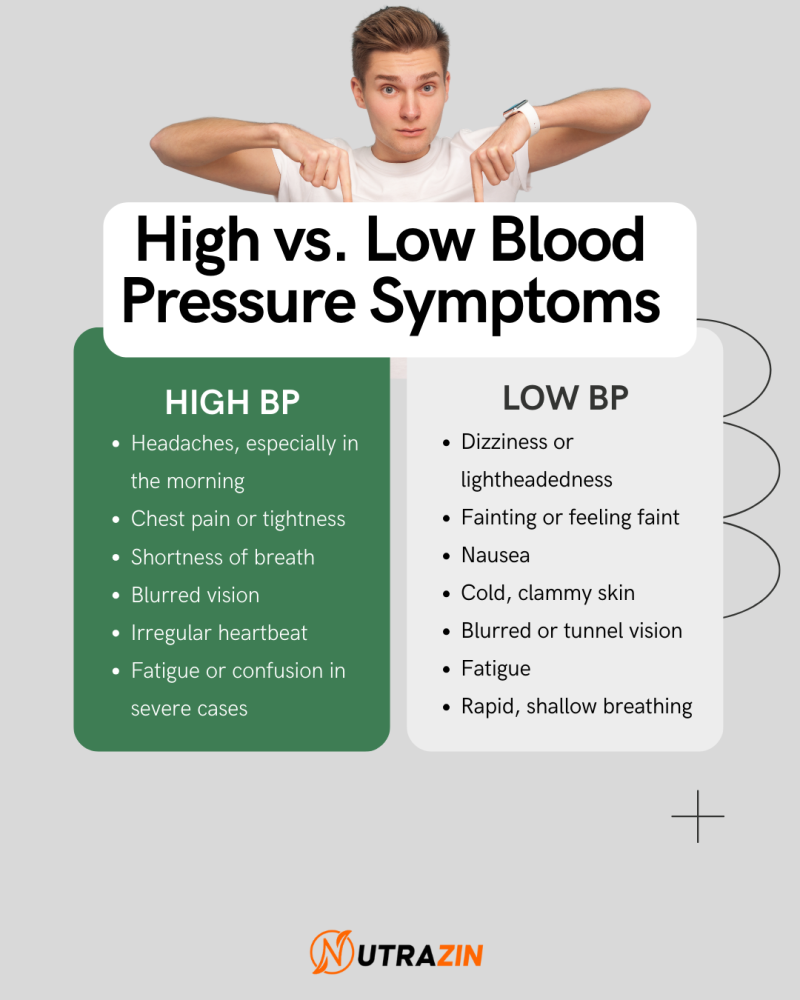
2. Low blood pressure (hypotension)
Although low BP is often considered “healthy”, extremely low readings can be dangerous – especially if they affect the oxygen distribution in your organs.
The symptoms may include:
- Fatigue
- Dizziness
- Fainting
- nausea
- Blurry sight
- Cold, damp skin
Common causes:
- Dehydration
- Blood loss or anemia
- hormonal imbalance
- Heart conditions
- Some medications
Both high and low blood pressure require attention. The body depends on a healthy area to function in its best shape.
Why blood pressure becomes noticeable daily
You cannot feel the effect of low blood pressure management today – but the effect of it is cumulative.
Left, unusual BP can:
- Thick and narrow arteries
- Reduce the blood flow to the brain and organs
- Trigger cardiac events
- Reduce life expectancy
- Reduce the quality of life
Blood pressure is not just a number; it reflects the health of your heart, blood vessels, kidneys, and nervous system. And it speaks volumes.
Lifestyle strategy to maintain healthy blood pressure
The best part? Blood pressure is one of the most preventable and manageable health risks – especially with a change in simple lifestyle.
Nutrition
- Choose potassium-rich foods -like (banana, avocado, sweet potato)
- Cuts on salt (sodium causes water retention, which increases BP)
- Pay attention to whole grains, lean protein, healthy fat
- Limit processed food and trans fat
Physical Activity
- Aim for 150 minutes of moderate-intensity exercise per week
- Walking, cycling, swimming or yoga
- Strength training helps support vascular health too
Stress Handling
- Chronic stress is a major contributor to high BP
- Practice mindfulness, breathing exercises, or even light stretches
- Relax – your body and your mind need it
Quit harmful habits
- Smoking? It immediately increases BP and damages the arteries
- Alcohol? Limit it to 1-2 servings/day
- Caffeine? Monitor how your body reacts – for some it spikes BP.
Stay hydrated and balanced
- Dehydration can cause low BP and fatigue
- Drink clean water throughout the day and balance the electrolytes
Regular monitoring
- Check BP Monthly (if you have a history more often)
- Use a reliable digital monitor or visit a healthcare provider
- Log your readings to track patterns and changes over time
Prevention is power: Who should be more vigilant?
While everyone should regularly monitor their blood pressure, regardless of age or health, some individuals have high risk and should be especially vigilant. Adults over 30 years often begin to experience physical changes that can affect heart function, making it important to start monitoring regularly. People with a family history of heart disease or hypertension have a genetic tendency, increasing the possibility of developing blood pressure-related complications, even if they feel completely healthy.
People living with diabetes or chronic kidney disease are particularly weak, as these conditions directly affect blood vessels and filtration systems in the body, which creates an ideal storm for unstable blood pressure. Pregnant women also require careful monitoring, as conditions such as preeclampsia can develop rapidly and can cause serious risks to both mother and child if they are not uncontrolled.
Moreover, people who lead high-stress lifestyles or spend long hours in sedentary positions—such as office workers, long-distance drivers, or students—are unknowingly putting their cardiovascular system under constant pressure. Chronic stress triggers hormonal imbalances that tighten blood vessels, while physical inactivity weakens the heart muscle and circulation over time.
It is never rushed to start taking care of your blood pressure. Changes in lifestyle and early awareness can help prevent years of silent damages. The sooner you take control, the easier it will be to manage your health and protect your future.
Nutrazin: Because your heart deserves real care

Nutrazin offers more than products—it offers dimensions. Our scientifically prepared wellness supplement supports heart health, improves circulation, and increases energy naturally.
We believe in building faith, education, and empowerment – a healthy heartbeat at a time.
Whether you’re managing high BP, low BP, or simply looking to prevent it, we stand with you every step of the way.
Nutrazin – We don’t just care for your health. We commit to it.
Because your heart isn’t just an organ — it’s your story, your strength, your life.

